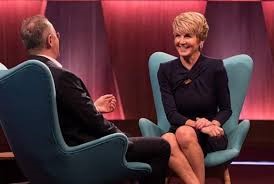by Amelia Stubley
March 5, 2020
Public Relations
Media training is sometimes regarded as a way for powerful people to learn how to avoid legitimate public scrutiny.
But it is increasingly being used to help good people convey important information to those who need to hear it, while mitigating risky issues as they arise. These leaders may be from a charity, sporting group or any rising organisation with a truly inspiring purpose.
My first blog post of 2020 explores how the foundations of media training aim to assist these leaders to effectively communicate their story, in a way that makes their audience listen.
We’ve all seen a bad interview or two in our time. You know – the ones where the interviewee is flicking his or her eyes around in a particularly shifty manner when asked tricky questions by the host. They may even sound arrogant and insensitive about topics you’d expect them to be a little more empathetic about.
Then there’s the straight-up train wrecks.
1. Prince Andrew – whether you watched the Prince Andrew interview about Jeffery Epstein or not, I’m sure you heard about how catastrophic it was for his already damaged reputation. Was it a coincidence his Communications Secretary had walked out on him two weeks prior?
2. Chinese diplomacy – Then there’s the recent Q&A with the Chinese embassy’s Deputy Head of Mission Wang Xining. When asked about his country’s handling of the coronavirus, Wang called camps where one million Uighurs are locked up as “training centres”, drawing “shocked laughter” from the audience. Others have called them ‘concentration camps’. I could go on.
If you’re a leader of a company or working in the public eye, it is likely you will be required to do an interview at some point. Whether it’s in response to a crisis, or a proactive opportunity to promote your company, you can never be too prepared.
When I first heard about media training, I thought it sounded like a major cop out. Surely, if a company has honest intentions and nothing to hide, why on earth would they need someone to help script answers for them? I have heard these sentiments echoed by my friends and family who don’t work in either journalism or public relations.
After being involved in the media training process a few times as a PR professional, I had the pleasure of getting to know some of the people behind the different companies. Real people, passionate about their companies, who just want to be able to tell their story in the best way possible.
Top benefits of media training
1. Be a spokesperson not an answer-person
It’s human nature to automatically respond to a question when asked. However, when it’s a journalist conducting an interview, it’s always a good idea to think about your responses before answering immediately. After all, they have a job to do and an engaging story to tell – whether that means putting you in a positive light or not.
2. Stay on message
One of the first steps is helping define key messages. These will be your media mantra. They must be ‘newsworthy’ – which means anything ‘new’ (they don’t call it news for nothing!).
Testing these messages will often involve responding to difficult questions and teaching you how to take control and maintain composure – a crucial skill for anyone that can be mastered through training and practice.
Going into an interview without clearly defined key messages or feeling ill-prepared also dramatically increases the likelihood of you performing badly, and unfairly undermining the confidence in your organisation.
The best interviews are those where the spokesperson remains unruffled, knowledgeable, and ‘unscripted’. Doing the perfect ‘unscripted’ interview, like creating the perfect ‘natural’ make up look, often takes more time and preparation – something that only comes with practice and the right tools.
3. Deliver your message with style
When being interviewed on TV, viewers are listening to what you’re saying – and watching your body language and facial expressions too.
If you want some inspo, former Australian Foreign Minister Julie Bishop is a fabulous example of someone who controls interviews with poise. Her cool, calm and collected manner comes with years of experience in answering difficult questions and getting her messages across. If you don’t have years to learn the errors of your ways and finesse your style, media training can fast-track the process and give you skills that often take decades to learn.
I encourage you to watch Julie being interviewed without sound to see the masterful way she takes her time answering and reassures the viewers by using simple gestures to emanate reliability and amiability.
The key is to ‘own the tone’.
All-in-all, media training seeks to help people tell their stories in a way that makes their audiences listen. This may come more naturally to some than others, but everyone deserves an even playing field in the public eye.
Find out more
If you want to add to the conversation or chat about media training, please contact Amelia Stubley.

Suite 94 | Jones Bay Wharf
26-32 Pirrama Road
Pyrmont NSW Australia 2009


